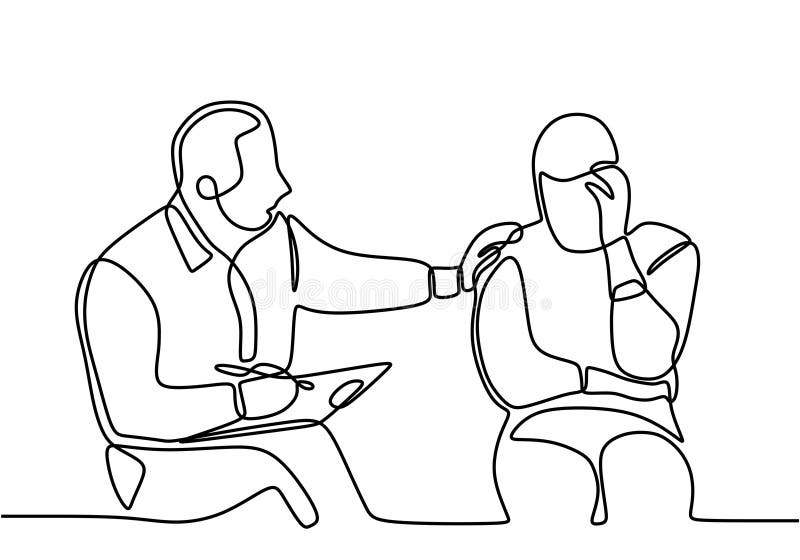Leading Factors to Consult the Best Psychologist in Delhi for Your Emotional Health
Leading Factors to Consult the Best Psychologist in Delhi for Your Emotional Health
Blog Article
Psych Therapy: A Comprehensive Guide to Methods and Outcomes

Cognitive-Behavioral Treatment
Cognitive-Behavioral Therapy (CBT) is a commonly made use of psychotherapeutic method that concentrates on identifying and changing dysfunctional thinking and actions patterns. Created in the 1960s by Aaron T. Beck, CBT integrates behavioral and cognitive theories to attend to various mental wellness problems, consisting of depression, stress and anxiety, and stress-related problems.
Methods such as cognitive restructuring, exposure therapy, and skill-building exercises are commonly used. Cognitive restructuring includes difficult and altering adverse idea patterns, while exposure therapy intends to minimize worry and anxiety through steady direct exposure to feared scenarios or things.
Evidence-based research sustains the effectiveness of CBT for a large range of emotional conditions - Best Psychologist in Delhi. Its focus on ability purchase and self-help techniques encourages clients to proceed development independently after treatment wraps up. The flexibility and efficiency of CBT have made it a cornerstone in modern psychotherapeutic method
Psychodynamic Methods
Rooted in the very early theories of Sigmund Freud, psychodynamic strategies concentrate on discovering the unconscious mind and its impact on behavior and feelings. These methods intend to reveal concealed thoughts and feelings that might be driving maladaptive behaviors and emotional distress. Central to this strategy is the concept of internal problem, usually coming from unsolved past experiences, especially those from childhood.
Therapists utilizing psychodynamic strategies employ a number of vital methods, consisting of free association, where individuals are urged to speak easily to disclose subconscious material, and dream analysis, which translates the unrealized content of dreams. Furthermore, the expedition of transfer and countertransference characteristics within the therapeutic relationship is important. These communications can give insights into the client's interior globe and relational patterns.
Psychodynamic treatment is typically longer-term contrasted to various other methods, offering a deep and extensive understanding of the person's subconscious. Study indicates that it can be especially efficient for complicated mental health and wellness problems, such as individuality disorders and persistent anxiety. By promoting self-awareness and emotional insight, psychodynamic treatment seeks to bring subconscious material to consciousness, enabling individuals to achieve meaningful and long lasting modification in their lives.
Humanistic Methods
Building on the foundations laid by psychodynamic approaches, humanistic strategies supply a distinctive viewpoint concentrated on private prospective and self-actualization. Coming from the mid-20th century, these strategies focus on the intrinsic goodness and development possibility of people, highlighting a holistic sight of human experience. Trick figures such as our website Carl Rogers and Abraham Maslow have significantly affected this restorative method, which encompasses approaches like client-centered therapy and Gestalt therapy.
Client-centered treatment, established by Rogers, plays a pivotal duty in humanistic strategies. It depends on the therapist giving an atmosphere of unconditional favorable regard, compassion, and congruence. This cultivates a risk-free space for clients to explore their feelings and experiences without judgment, promoting self-discovery and personal development. The therapist's duty is more of a facilitator than an authority, urging clients to harness their internal resources for recovery.
Gestalt therapy, one more vital humanistic method, stresses present minute awareness and the combination of body and mind. By focusing on the "below and now," clients obtain higher understanding into their present feelings and behaviors. Methods such as role-playing and led visualization are commonly employed to help clients obtain a deeper understanding of themselves, eventually bring about boosted self-awareness and fulfillment.
Integrative Therapies
Integrative treatments stand for a synthesis of various restorative methods customized to meet the distinct requirements of each customer. This strategy recognizes the complexity of human psychology and the diverse nature of mental wellness problems. By incorporating aspects from different schools of psychotherapy-- such as cognitive-behavioral treatment (CBT), psychodynamic therapy, and humanistic techniques-- integrative treatments supply an even more holistic and flexible treatment paradigm.
Professionals of integrative treatment examine each customer's details demands, symptoms, and individual background to design a customized therapy strategy. This customized technique boosts the possibility for restorative success by attending to the source of psychological distress and check my source promoting overall health. Strategies could consist of mindfulness exercises, cognitive restructuring, and emotional handling, each picked to target various elements of the client's issues.
In addition, integrative treatments highlight the therapeutic partnership, checking out the client-therapist bond as a critical part of efficient therapy. This partnership promotes an encouraging atmosphere where clients really feel risk-free to discover and resolve their concerns. The flexibility of integrative therapies makes them suitable for a wide variety of problems, including anxiousness, anxiety, injury, and interpersonal troubles, thus increasing their applicability and performance in diverse professional settings.

Gauging Treatment Outcomes
Reviewing the efficiency of psychiatric therapy is vital for both clinicians and customers to make sure that the treatment is producing the desired results. To achieve this, different approaches and tools are used to measure therapy end results systematically. Standard analysis instruments, such as the Beck Anxiety Supply (BDI) and the Generalized Stress And Anxiety Problem 7 (GAD-7), offer measurable information on signs and symptom severity and modifications with time.
In addition to standard devices, qualitative methods like client self-reports and professional meetings offer useful understandings right into the personal experiences and perceived development of clients. Routinely scheduled evaluations, generally at the start, middle, and end of therapy, help in tracking the trajectory of enhancement or recognizing locations requiring change.
Outcome measurement is not limited to symptom reduction; it also includes practical enhancements in everyday life, such as much better interpersonal connections, boosted job performance, and boosted total health. Modern advancements in electronic wellness have actually presented mobile applications and on the internet platforms that help with real-time tracking and feedback, even more refining the assessment procedure.
Inevitably, a detailed technique to determining therapy outcomes ensures that therapeutic treatments work, reliable, and tailored to meet the individual needs of customers, consequently enhancing the overall therapeutic experience.
Verdict
Humanistic techniques concentrate on individual growth and self-actualization, while integrative treatments combine several approaches for tailored therapy strategies. Assessing treatment end results with qualitative approaches and standardized evaluations makes certain a comprehensive understanding of efficiency, inevitably guiding clients toward withstanding psychological wellness improvements.
From the organized strategy of Cognitive-Behavioral Treatment (CBT) to the deep exploration of the unconscious in psychodynamic therapy, each technique brings one-of-a-kind advantages. Its emphasis on skill acquisition and self-help methods equips customers to proceed progression individually after therapy concludes (Best Psychologist in Delhi). Secret figures such as Carl Rogers and Abraham Maslow have actually dramatically affected this healing approach, which encompasses methods like client-centered therapy and Gestalt therapy

Report this page